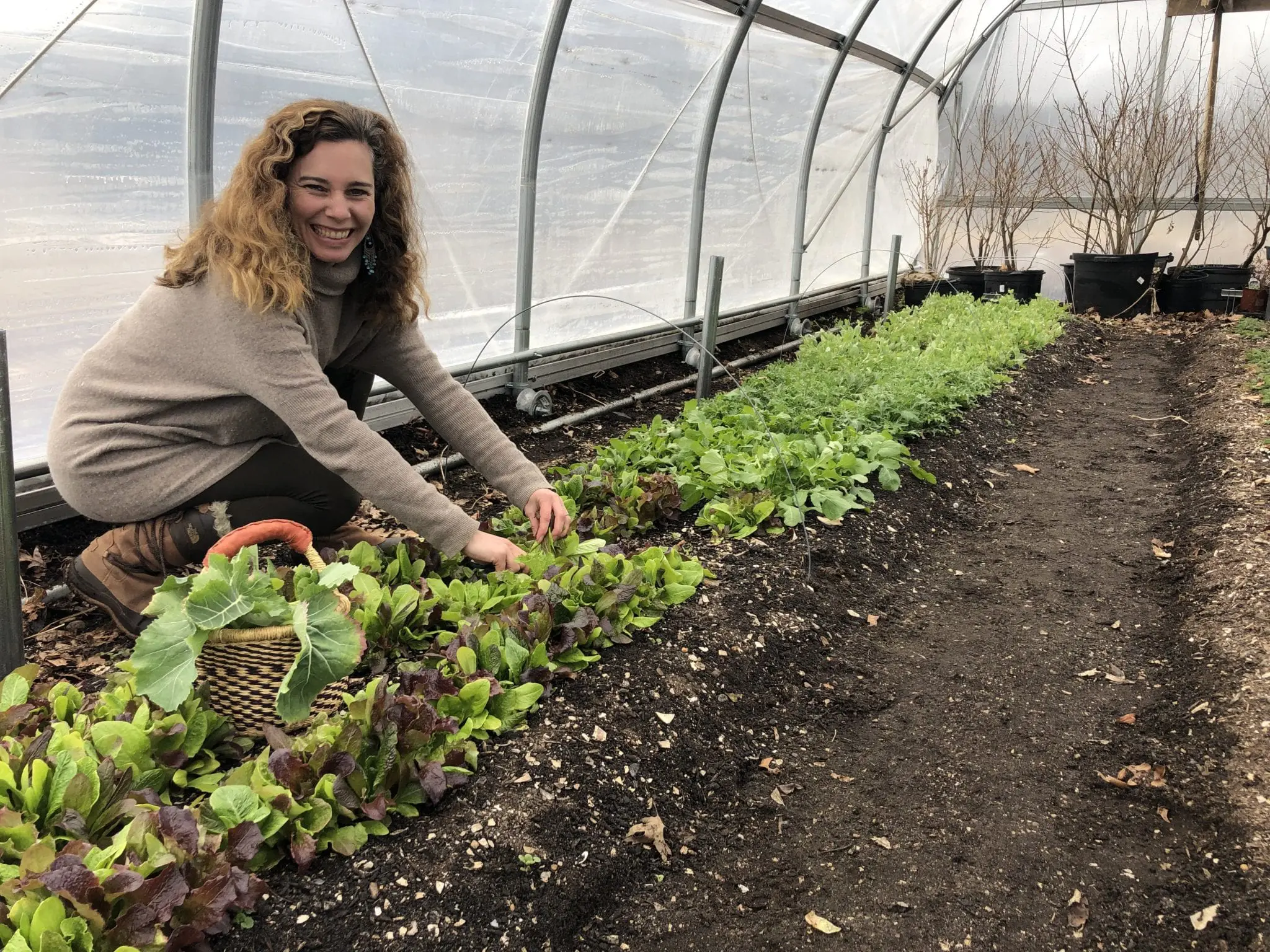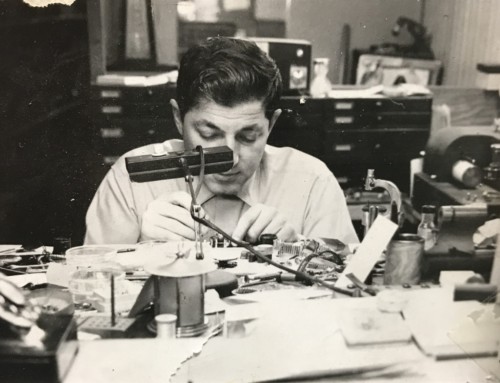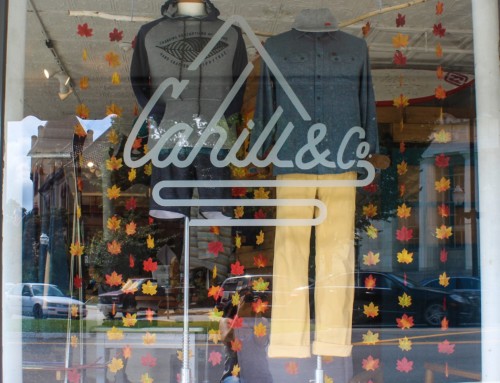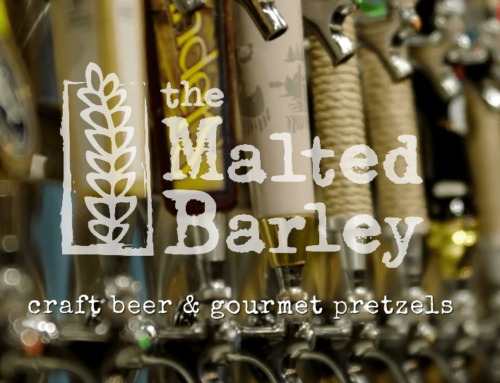Earth Care Farm creates some of the finest compost in the area for all of your gardening and landscaping needs. Jane Merner Senecal is the manager of Earth Care Farm, which was founded in the late 1970s by her father, Mike Merner. Mike spent years studying turfgrass management and made a career as a landscaper but found that his social scene and personal ethics were increasingly at odds with his heavily chemical-based work. “My parents were hippies, and very much a part of the Back to the Land movement of that era, so they started a homestead together,” Jane explained.
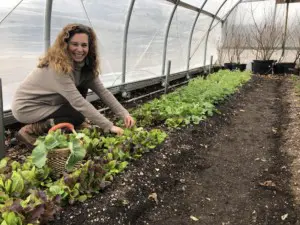
“He realized that truly healthy soil is the root of healthy plants, animals, and people – the whole planet, really, it just has this awesome, expounding effect.”
Tapping into the older generations of farmers who had managed pre-chemical agriculture and reading Organic Gardening and Mother Earth News, Mike started using his homemade compost on his garden and lawn and seeing amazing success.
“He would collect fish scraps from the docks and manure from nearby farms, but special events made for new opportunities as well,” Jane shared. “He picked up the hay bails at the end of the night after my Sadie Hawkins dance, and took the elephant manure when the Big Apple Circus came through town.”
From humble beginnings, using a pitchfork and tractor to personally pick up the ingredients, the project grew bigger and bigger and now everything is brought directly to Earth Care Farm from local businesses. The towns of Westerly, Groton, and Stonington all contribute, along with manure from Roger Williams Park Zoo – and the leftover pumpkins following the Jack-O-Lantern Spectacular as well. Earth Care Farm also incorporates fish products from New Bedford, tea leaves and coffee grinds and coffee bean chafe from Dave’s Coffee, and the sediments at the bottom of the beer kegs from Whalers Brewing.
“It’s a neat way to see the local industries,” Jane explained. “Each one is providing a different nutrient and micro-nutrient and in different values, so there’s a bit of a science and an art to get the right ratio, but we’ve gotten it down over the decades. The amount of life in soil is just astounding. There are over 25,000 species of probiotic bacteria, and each one is able to communicate with plant roots in different ways and uniquely nourish them.”
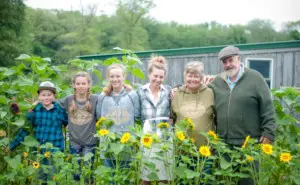
“My dad was starting to have a harder time doing all of the work, physically, a few years ago. My siblings were fairly settled into their careers, but I realized that I could do both – have a gardening business and make compost. It’s actually really nice because it gives me a chance to test out our product and see the results firsthand.”
That was three years ago, and Earth Care Farm is still thriving.
“I also love being able to carry on my dad’s legacy and continue the work that he started – and I’m fortunate that I can still pester him with questions.”
The work varies day to day, and season to season. The mornings typically start with taking care of the animals – goats, hens, and cattle, and then Jane’s team arrives around 7:30 a.m. to get set up for the rest of the day.
“There are so many different facets going on – making compost, bagging the compost, working in the field.”
Earth Care Farm also functions as a source of produce for Roch’s Market and local kitchens, including the Celestial Cafe, Roger Williams University, and Aunt Carrie’s, and also has a contract with Hope’s Harvest, which allows them to grow food for the food bank. Last year, Earth Care Farm grew sugar snap peas and 1300 pounds of green beans for them. Jane does a little bit of everything in a given day, supervising everyone, from the seasoned pros to the high school apprentices from Chariho and Westerly, and ensuring that the wheels are constantly in motion.
Beyond the production of compost, Earth Care Farm also offers a variety of educational opportunities.
“I love to teach people how to grow food,” Jane explained. The farm hosts a monthly story hour and activity for preschool-age children, centered around an element of farming. “So we might share a story about potatoes, and then have the kids dig some up themselves and visit the animals, and then each child gets to bring back a little bag of potatoes as well. It’s very simple and nice, and all by donation. We want it to be accessible to everyone.”
Homeschooling students and families are also welcome to attend special programs at the farm and take a tour with Jane, observe the screening process of the compost taking place with the big equipment. Adult gardening classes are offered monthly – individuals are encouraged to sign up for the whole season for a more immersive experience, but are also welcome to pick and choose.
“It’s a two hour class with a farm-produced snack halfway through,” Jane explained. “We just do whatever needs to be done in the garden and talk about it.”
The classes typically sell out every time.
So why invest in compost made at Earth Care Farm? The reasons, like the probiotic bacteria and micronutrients present in the compost itself, are plentiful. “It can completely eliminate your need for any chemical fertilizer,” Jane explained. “My dad put in the lawn at the Chariho Animal Hospital, and they’ve never had to fertilize in the thirty years since. If you treat your soil well at the beginning of a gardening project, you’re preventing problems later on.”
Jane recommends keeping soil health in mind whenever you grow or buy produce.
“It’s just as important as whether it’s certified organic or anything like that,” she shared. “To have healthy food, you need to have healthy soil.”
To put this in perspective, Earth Care Farm has been participating in a study being conducted by the Real Food Campaign, in which samples of carrots, kale, and spinach is grown across the US and parts of Canada and Mexico are being tested for nutrient density and soil profile. The study is ongoing, but early results are showing that there can be 200 times more nutritional value in a carrot grown at a farm with a higher quality soil profile on one farm than the next.
We make choices about the food we consume and feed to our loved ones every day – it only makes sense to start at the root and work your way up, and Earth Care Farm is here to help your garden and your family grow healthier than ever.
